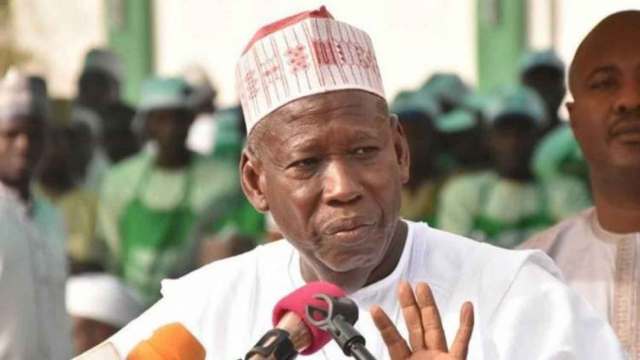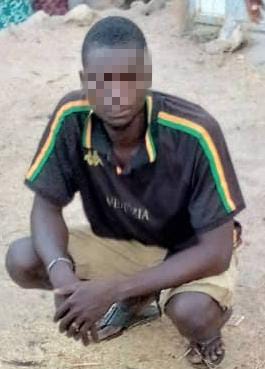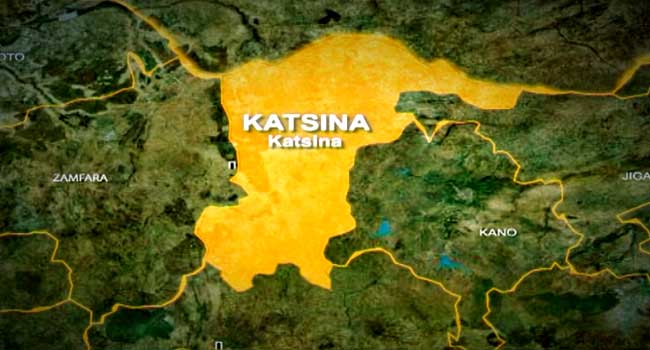Hepatitis kills 1.3 million people yearly globally – WHO
The World Health Organisation on Tuesday said viral hepatitis infections are the second leading infectious cause of death globally, with 1.3 million deaths per year, the same as tuberculosis, a top infectious killer. WHO disclosed this in its 2024 Global Hepatitis Reports at the World Hepatitis Summit. The WHS is taking place from April 9 to 11, 2024, in Lisbon, Portugal, under the theme, “Integrate Accelerate Eliminate.”” WHS is a global meeting to advance the viral hepatitis agenda and provide a platform for a broad hepatitis community to take stock of progress to date, and share experiences and best practices in reaching and validating viral hepatitis elimination. WHO said hepatitis is an inflammation of the liver that is caused by a variety of infectious viruses and non-infectious agents, leading to a range of health problems, some of which can be fatal. Make Me A Pope, I Will Impregnate All Women In Church – Prophet Who Married Three Wives | Punch0.00 / 0.00 There are five main strains of the hepatitis virus, referred to as types A, B, C, D and E. While they all cause liver disease, they differ in important ways including modes of transmission, severity of the illness, geographical distribution and prevention methods. According to the body, its African region bears 63 per cent of new hepatitis B infections, yet despite this burden, only 18 per cent of newborns in the region receive the hepatitis B birth-dose vaccination. “In the Western Pacific Region, which accounts for 47 per cent of hepatitis B deaths, treatment coverage stands at 23 per cent among people diagnosed, which is far too low to reduce mortality. “Bangladesh, China, Ethiopia, India, Indonesia, Nigeria, Pakistan, the Philippines, the Russian Federation and Viet Nam, collectively shoulder nearly two-thirds of the global burden of hepatitis B and C. Achieving universal access to prevention, diagnosis, and treatment in these ten countries by 2025, alongside intensified efforts in the African Region, is essential to get the global response back on track to meet the Sustainable Development Goals,” it highlighted. The global health body said the number of lives lost due to viral hepatitis is increasing as the infections claim 3,500 lives every day. The WHO report highlighted that despite better tools for diagnosis and treatment, and decreasing product prices, testing and treatment coverage rates have stalled. But, reaching the WHO elimination goal by 2030 should still be achievable, if swift actions are taken now. “New data from 187 countries show that the estimated number of deaths from viral hepatitis increased from 1.1 million in 2019 to 1.3 million in 2022. Of these, 83 per cent were caused by hepatitis B, and 17 per cent by hepatitis C. Every day, 3,500 people are dying globally due to hepatitis B and C infections,” it noted. The WHO Director-General, Dr Terror Ghebreyesus said, “This report paints a troubling picture: despite progress globally in preventing hepatitis infections, deaths are rising because far too few people with hepatitis are being diagnosed and treated. “WHO is committed to supporting countries to use all the tools at their disposal – at access prices – to save lives and turn this trend around.” Updated WHO estimates indicate that 254 million people live with hepatitis B and 50 million with hepatitis C in 2022. Half the burden of chronic hepatitis B and C infections is among people 30–54 years old, with 12 per cent among children under 18 years of age. Men account for 58 per cent of all cases. “New incidence estimates indicate a slight decrease compared to 2019, but the overall incidence of viral hepatitis remains high. In 2022, there were 2.2 million new infections, down from 2.5 million in 2019. “These include 1.2 million new hepatitis B infections and nearly 1 million new hepatitis C infections. More than 6,000 people are getting newly infected with viral hepatitis each day. “The revised estimates are derived from enhanced data from national prevalence surveys. They also indicate that prevention measures such as immunization and safe injections, along with the expansion of hepatitis C treatment, have contributed to reducing the incidence,” it stated. On the progress and gaps in diagnosis and treatment, the organisation said across all regions, only 13 per cent of people living with chronic hepatitis B infection had been diagnosed and approximately three per cent (7 million) had received antiviral therapy at the end of 2022. “Regarding hepatitis C, 36 per cent had been diagnosed and 20 per cent (12.5 million) had received curative treatment. “These results fall well below the global targets to treat 80 per cent of people living with chronic hepatitis B and hepatitis C by 2030. However, they do indicate slight but consistent improvement in diagnosis and treatment coverage since the last reported estimates in 2019. Specifically, hepatitis B diagnosis increased from 10 per cent to 13 per cent and treatment from two per cent to three per cent, and hepatitis C diagnosis from 21 per cent to 36 per cent and treatment from 13 per cent to 20 per cent.” The report recommends acceleration of hepatitis elimination by expanding access to testing and diagnostics; shifting from policies to implementation for equitable treatment; strengthening primary care prevention efforts; simplifying service delivery, optimising product regulation and supply; developing investment cases in priority countries, and mobilising innovative financing; among others.














